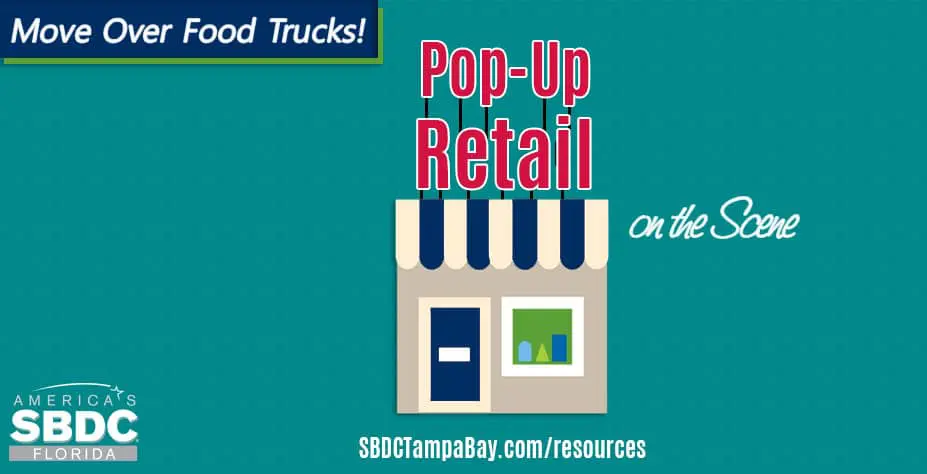Move Over Food Trucks! Pop-Up Retail on the Scene
by Pat Gordon | November 9, 2017
I’m not sure anyone could have predicted the potential popularity of mobile restaurants, i.e. gourmet food trucks, and yet the industry continues to thrive and prosper. All those years of deciding where to go for lunch every day, and now, if you’re lucky enough to be in an office building with a regular lineup of weekly food trucks, you no longer need to decide where to dine. Now it all comes to you – Monday is seafood tacos, Tuesday is salads and smoothies, and gumbo on Wednesdays.
We are witnessing another “quasi-mobile” industry with the explosion of pop-up retail outlets. The food truck industry used to be limited to sandwich wagons at construction sites and hot dog stands by the beach. Similarly there have always been pop-up retail stores – the Halloween costume shops only in October, the cheese and sausage gift shops in the mall kiosk at Christmas.
More and more, we are seeing pop-up retail outlets year-round and they’re not limited to holiday related items. There are pop-up stores now for clothing, shoes, handbags and even housewares. They are usually small, with limited signage and require very little build-out expense. And they make perfect sense for so many businesses.
I’ve consulted recently with a client with great reasons to consider a pop-up location. My client has a very successful antique and home decorating store. She has a loyal following of customers and they don’t mind going out of their way to get to her location, but she wants to expand. She has a business model that has worked well – an attractive mix of products, competitive prices and a fun place to shop. Now she wants to reach some new markets, but isn’t sure if some of the areas she is considering will have the right mix and the necessary volume of customers. Signing a three to five-year lease would be a significant increase to her operating expenses and with no guarantee that it will generate enough revenues to make it worthwhile.
She has decided to postpone the long-term lease, and instead she found an empty building and a landlord who was anxious to have a tenant again, even if it is short-term. It is a win-win proposition. The business owner gets to “test drive” a new market, start to grow a new customer base, build name recognition in a new city and limit her risk with a six-month lease. The landlord starts generating rent again.
Another client is considering a pop-up shop for different reasons. She too is uncertain about where her best customers are going to be located. She will be marketing a product line that has never been sold in Florida. She has a limited budget so not only does she want to keep her lease expense down, she also doesn’t want to purchase a huge inventory before she knows what is and isn’t going to sell. A small pop-up store with a short-term lease will let her control her expenses and she can fill the shelves of a smaller store with fewer items and still appear fully stocked.
Here are some things to keep in mind if you are considering a pop-up shop:
- Landlords would much rather have a long-term tenant especially if they have to incur expenses with a new business build-out – so be ready to negotiate to make it worthwhile for the landlord – limit your build-out needs and/or cover the cost yourself.
- A short-term lease lets the landlord terminate the agreement if he/she finds a long-term tenant, so negotiate some more – for the option to turn a short-term arrangement into a long-term relationship if after a few months you decide that you’ve found the right location.
- And if you do move on after a short-term stay, your new customers have to find you again, so be sure you maintain an accurate customer database to let them know where you are going to “pop-up” again.





